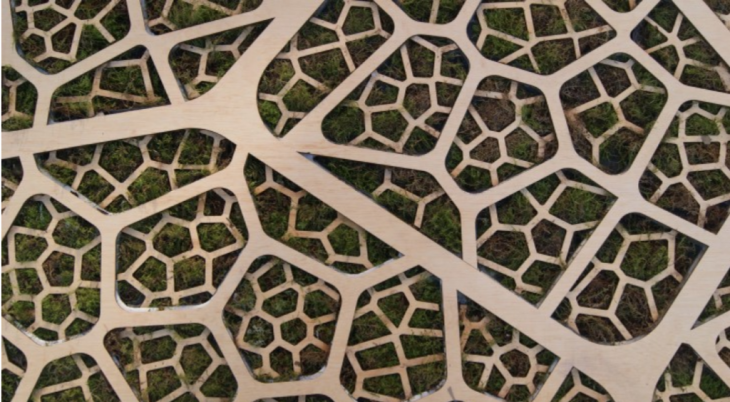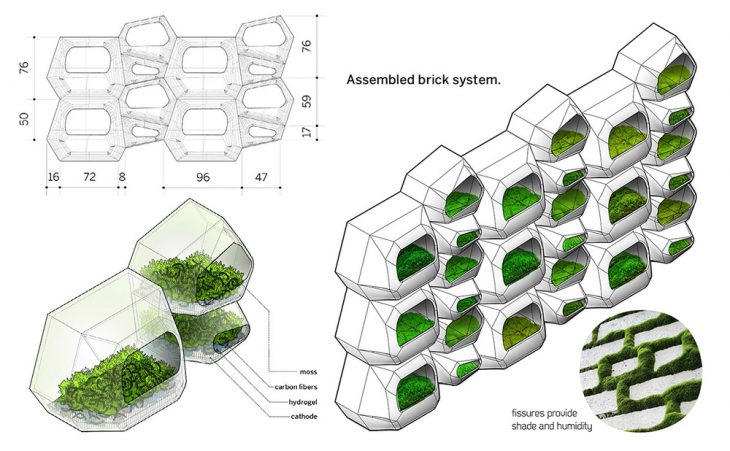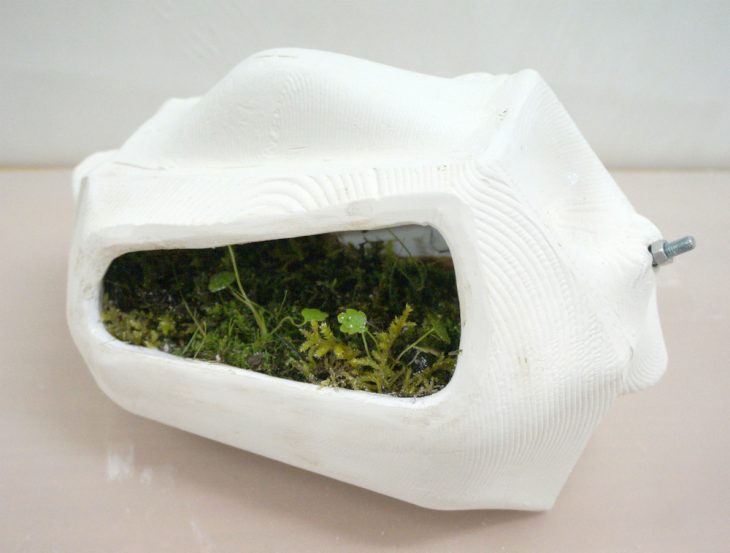SE.9 – Elective Seminar
URBAN BIO-SYSTEMS
Faculty: Chiara Farinea
Biophotovoltaic technology experts: Pau Bosh, Clara Corbella (Leitat)
Computational Expert: Rodrigo Aguirre
Fabrication Expert: Ricardo Mayor Luque
Student assistant: Mohamad El Atab
In collaboration with: Leitat Innovation Center

We are living in a time of great opportunities for addressing societal challenges, such as increased urbanization, economic inequalities and climate change, and towards ensuring our society is protected from harmful future changes. After considerable investment in research on how nature based solutions can improve people life quality, we can now use this knowledge to turn these challenges into actions for sustainable and green growth.
Climate change is the fundamental design issue of our time. This seminar aims to explore a diversity of perspectives on biological and ecological knowledge applied to urbanism, drawing potential from the fact that in our contemporary global world it is impossible to trace a clear distinction between nature and artifice, between landscape and city. We will work at the intersection of biology, computation, design and technology to map the potential for new urban systems, developing solutions that can significantly enhance the climate and water resilience of cities. We will develop projects addressing the challenge to provide cities with green infrastructure for multiple services (i.e. bio-photovoltaic modules for air and water purification, water storage, energy production), developing the projects to achieve functioning prototypes.
Objectives
Each group of students will develop a functioning prototype of a metabolic machine addressing, through nature based solutions, the following issues:
· Climate and water resilience enhancement
· Air Quality
· Energy Production
· Cities Renaturalization
Leitat scientists will be part of the seminar faculty team. Leitat is one of the major Catalan technological centers, aiming to manage Technologies to create Social, Environmental and Economic sustainable value through research and technology processes. Prototypes developed within the seminar will be exhibited at Smart City Expo

Bio-catalytic cells exhibited at London ZOO // T.Arnadottir, J.Dias, C.Wong
MAA02 2015.17 – seminar – tutors C.Farinea, P.Bombelli

BIO-PHOTOVOLTAIC PANEL // M.Apostolos
MAA01 2013.14
Web Bibliography:
- http: //www.iaacblog.com/programs/bio-photovoltaic-panel-produces-energy-from-bacteria/
- https: //iaac.net/research-projects/self-sufficiency/moss-voltaics/
- http: //www.iaacblog.com/programs/biocatalytic-cell/
- http: //www.iaacblog.com/programs/liquitiles/
- http: //www.plant-e.com/
- https: //gizmodo.com/moss-covered-table-uses-photosynthesis-to-power-an-fm-r-1542241861
- https: //inhabitat.com/moss-table-by-biophotovoltaics-generates-electricity-through-photosynthesis/
- http: //www.iaacblog.com/programs/productive-landscape/
- http: //www.iaacblog.com/programs/group-5-torre-baro-energy-district-photovoltaic-panel/
- http: //www.iaacblog.com/programs/torre-baro-energy-district-group-1-team-3/
- http: //www.cam.ac.uk/research/news/the-appliance-of-design-in-science
- http: //www.ecologicstudio.com/v2/project.php?idcat=3&idsubcat=71&idproj=164
- http: //www.ecologicstudio.com/v2/project.php?idcat=3&idsubcat=71&idproj=147


Moss Voltaics Project // IAAC OTF student E.Mitrofanova // IAAC Faculty: S. Brandi, A. Dubor, L. Fraguada, P. Bombelli.
Collaboration: Ceramica Cumella